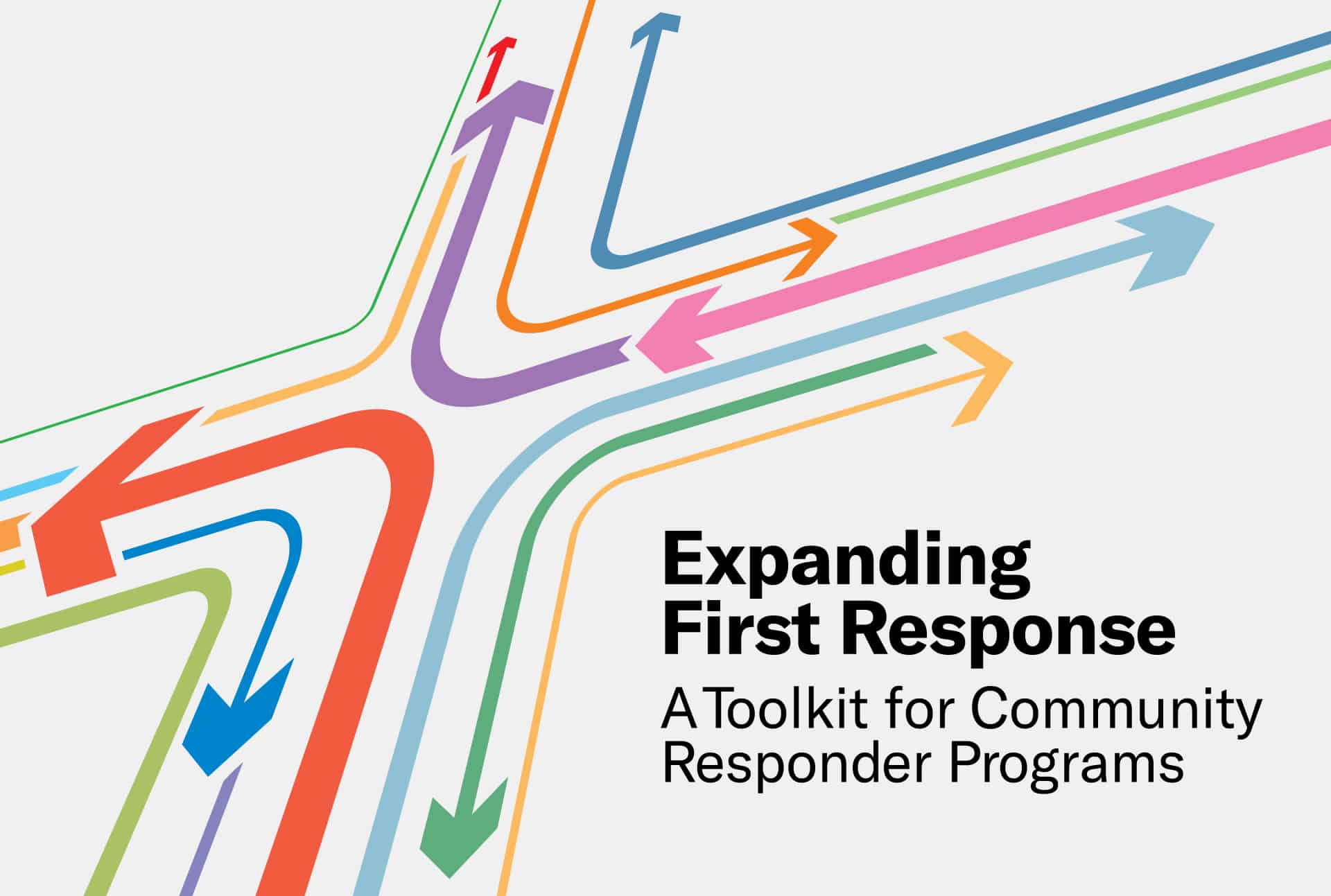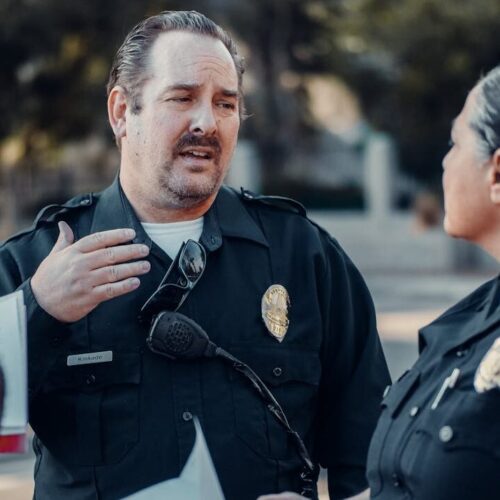
Staffing Community Responder Programs: Q&A with the Olympia (WA) Crisis Response Unit
A key component to assembling a successful, tailored community responder program is deciding who should be on the response teams. This can include determining the number of staff, the most appropriate professions to hire, and which agency employs them. While there are a number of staffing options available, the city of Olympia, Washington’s Crisis Response Unit can offer one example of a leading program housed within an existing government agency. Launched in April 2019, this unit provides outreach services to individuals in crisis, specifically people with mental illnesses and substance use and co-occurring disorders. The Council of State Governments Justice Center spoke with Outreach Services Coordinator Anne Larsen to learn more about the Crisis Response Unit’s approach to staffing and establishing effective responder teams.
Editor’s note: This interview has been edited for length and clarity.
Can you describe the Crisis Response Unit’s staffing model?
Our program is staffed by four crisis response specialists and two crisis response lead workers. Both positions engage with, assess, and transport people with behavioral health needs, but the leads oversee the specialists and act as coaches. Typically, two Crisis Response Unit team members will respond to a call for service together, but some calls, like those that simply involve helping someone who needs a ride to services, can involve a single team member.
Originally, the Olympia Police Department contracted with a local behavioral health provider to staff the units. However, these team members were eventually hired as city employees to ensure they received better benefits and pensions. Now, as we’re looking to hire more staff, we want people who demonstrate compassion, good problem-solving skills, resourcefulness, and the desire to work outside in various environments. There are no educational requirements to be a team member.
How do Crisis Response Unit staff work with law enforcement officers and other first responders?
We track our interactions with other first responders, whether with police officers, the fire department, or service providers to determine if the program is being used most effectively.
Since the Crisis Response Unit is housed within the Olympia Police Department, this has created an environment that is fluid and collaborative. For example, our staff are on the police radio, so that helps ensure that officers and sergeants are aware of calls directed to the Crisis Response Unit and the subsequent responses. Also, because we are well acquainted with each other, law enforcement officers often call for our staff to arrive to a scene when they determine a crisis response specialist is more appropriate.
Within the Crisis Response Unit, you have a program called “Familiar Faces” that uses peer support specialists to assist people with complex behavioral health needs who have frequent contact with the Olympia Police Department. How many specialists are part of this program and how are they recruited?
Currently there are two peers who are outreach specialists in the Familiar Faces program. They help identify clients and provide customized case management services. Like the Crisis Response Unit, Familiar Faces was initially a police department-contracted program, but they brought the program inhouse in June 2021. We recruit employees for Familiar Faces based on the skills they bring and celebrate lived experience with the criminal justice and/or behavioral health systems.
What kind of training does Crisis Response Unit staff receive?
Staff attends de-escalation, trauma-informed response, motivational interviewing, crisis intervention team, and anger management training. They have also been trained in radio procedures and have received general information about what to expect when they have been requested by law enforcement or vice versa.
What are your staffing expansion plans?
As our funding has increased, we have expanded to a 24/7-hour operation. Now, we are in the process of hiring 5 more crisis response specialists and partnering with a local hospital to bring a registered nurse on staff for 40 hours per week to provide non-acute medical care for conditions linked to poverty or lack of access to health care. Additionally, Familiar Faces is considering an internship program for individuals exiting incarceration. We also have a designated crisis responder on staff, through contract, to assist with assessments under the parameters of the Involuntary Treatment Act, which allows for court-ordered involuntary hospitalization due to a psychiatric emergency.
What advice would you offer to jurisdictions looking to build community responder teams?
Anyone considering starting a similar program should think about where their program would best reside first. For us, we believed it made the most sense embedded in the police department, but each jurisdiction should make this assessment for themselves. One way to make this determination is to seek public and ongoing feedback from elected officials, law enforcement officers, and the community to determine how community responders can address the community’s needs. It will also be important to pay attention to things like available physical space, size of the law enforcement agency, desired hours of operation, and other key factors like allowances for unionization of employees. Additionally, jurisdictions should develop plans for securing appropriate vehicles for community responder staff based on the types of calls they will be addressing.
To learn more about best practices in staffing community responder programs, visit Expanding First Response, a toolkit that serves as a central hub for states and local communities looking to establish or strengthen community responder programs.
About the Author

New Hampshire Department of Corrections Commissioner Helen Hanks presents at the Medicaid and Corrections Policy Academy in-person meeting.
Read MoreThe sharp rise in school shootings over the past 25 years has led school officials across the U.S.…
Read MoreIdeally, leaders would have actionable data readily available to them when they need it most. However, many agencies…
Read More Meet the Medicaid and Corrections Policy Academy Mentor States
Meet the Medicaid and Corrections Policy Academy Mentor States
New Hampshire Department of Corrections Commissioner Helen Hanks presents at the Medicaid and Corrections Policy Academy in-person meeting.
Read More Taking the HEAT Out of Campus Crises: A Proactive Approach to College Safety
Taking the HEAT Out of Campus Crises: A Proactive Approach to College Safety
The sharp rise in school shootings over the past 25 years has led school officials across the U.S. to take a closer look at ways to keep students safe. For Chaffey College in Rancho Cucamonga, California, a tragic incident at a nearby university hit close to home and spurred campus leaders to revisit their own school’s threat assessments and crisis responses.
Read More New Smart Supervision Resident Analyst Program to Increase Supervision Agencies’ Data Analysis Capacity
New Smart Supervision Resident Analyst Program to Increase Supervision Agencies’ Data Analysis Capacity
Ideally, leaders would have actionable data readily available to them when they need it most. However, many agencies encounter significant challenges related to procuring accurate, consistent, and timely data, often grappling with outdated systems and inadequate tools.
Read More From 911 to 988: Salt Lake City’s Innovative Dispatch Diversion Program Gives More Crisis Options
From 911 to 988: Salt Lake City’s Innovative Dispatch Diversion Program Gives More Crisis Options
A three-digit crisis line, 988, launched two years ago to supplement—not necessarily replace—911. Calling 988 simplifies access to services when people are seeking help for themselves or loved ones with suicidal thoughts, behavioral health concerns, or substance use-related crises.
Read More Matching Care to Need: 5 Facts on How to Improve Behavioral Health Crisis Response
Matching Care to Need: 5 Facts on How to Improve Behavioral Health Crisis Response
It would hardly be controversial to expect an ambulance to arrive if someone called 911 for a physical health emergency. And yet, for years, the default responders for a behavioral health emergency have been law enforcement officers, not behavioral health professionals.
Read More










